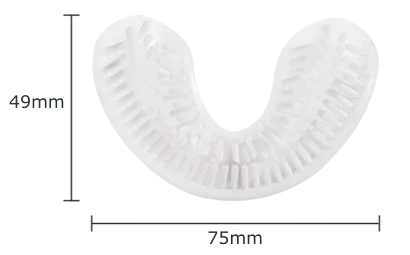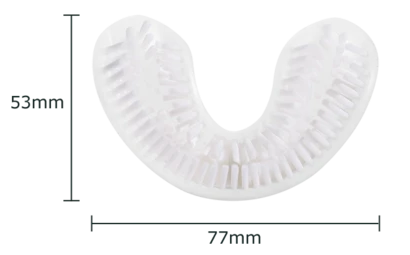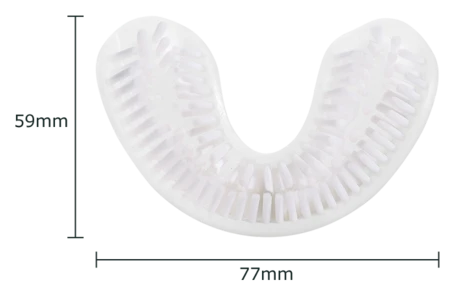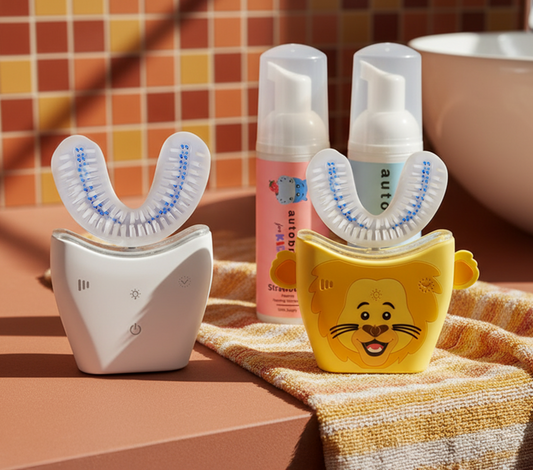
Understanding and Overcoming the Fear of Brushing Teeth
Brushing teeth is a simple part of daily life for most people. It’s a routine that helps keep our teeth healthy. But for some, the thought of brushing can trigger real anxiety.
This fear, known as dental anxiety, can make brushing a daunting task. The causes are varied: bad past experiences, fear of pain, or tooth sensitivity all play a role. Left unaddressed, avoiding brushing can lead to serious dental issues like tooth decay, gum disease, and bad breath.
This article explores the roots of this fear and offers practical tips to overcome it. With the right approach, anyone can regain control over their dental health and face brushing with confidence.
The Reality of Dental Anxiety and Fear of Brushing
Dental anxiety is more common than you might think. It affects many people, to varying degrees, making everyday tasks like brushing feel overwhelming.
For some, past painful experiences at the dentist are a trigger. For others, sensitivity to hot or cold temperatures can turn brushing into a stressful event. The fear doesn’t stop with brushing—it can also extend to flossing or using mouthwash.
Signs of this anxiety include:
- An increased heart rate when thinking about brushing
- Sweaty palms or trembling hands
- Skipping or delaying brushing sessions
- Feeling tense or anxious in the bathroom
Recognizing these symptoms is the first step toward managing them. The good news is, with time and the right strategies, this fear can be overcome.
Common Causes Behind the Fear of Brushing Teeth
It’s important to understand what triggers this fear so it can be addressed. Several factors may contribute:
- Past experiences: A painful dental procedure can leave lasting scars, making brushing seem daunting.
- Fear of pain: Sensitivity in your teeth can heighten the anxiety around brushing.
- Texture issues: Some people feel uncomfortable with the texture of toothpaste or toothbrush bristles.
- Anticipatory anxiety: Worrying about discomfort can make the fear worse.
- The sound or sensation of brushing: For some, even the sound of a toothbrush is distressing.
In children, this fear may stem from not fully understanding the need for brushing. Recognizing the root cause of the fear is crucial to overcoming it.
Psychological and Physical Consequences of Dental Anxiety
Avoiding regular brushing can lead to both physical and psychological consequences.
On the mental side, dental anxiety often leads to a vicious cycle. The more you avoid brushing, the more your anxiety grows. This cycle can make it even harder to get back on track.
Physically, avoiding brushing can result in:
- Tooth decay: Plaque builds up on your teeth, leading to cavities.
- Gum disease: Without proper brushing, gums can become swollen, bleed, and feel uncomfortable.
- Bad breath (halitosis): Poor oral hygiene can cause unpleasant breath, affecting your confidence and social interactions.
The longer dental anxiety is left unaddressed, the bigger the impact it can have on both your oral and overall health.
Strategies to Overcome Brushing Teeth Anxiety
Overcoming anxiety around brushing is possible. The key is taking small, gradual steps. Here’s how:
- Start slow: Hold the toothbrush without brushing. Get comfortable with its texture.
- Touch your teeth with the brush: Begin by gently touching your teeth, practicing this until it feels more natural.
- Use distractions: Listen to your favorite music or watch TV while brushing. This can help keep your mind off the anxiety.
- Create a calming environment: Soft lighting, calming colors, and a tidy bathroom can help reduce stress.
- Positive reinforcement: Reward yourself after each brushing session, no matter how small the step forward.
- Breathing exercises: Practice deep breathing before brushing to calm your mind.
- Choose the right tools: Use a soft-bristled toothbrush and a gentle toothpaste to minimize discomfort.
Other helpful tips:
- Set small, realistic oral hygiene goals.
- Use apps to track your progress.
- Talk to family members for support.
- Practice mindfulness during brushing.
For more severe cases of anxiety, professional help, like cognitive behavioral therapy, may be beneficial. The goal is to be patient with yourself and recognize that overcoming this fear is a gradual process.
The Role of Dental Professionals and Psychological Support
Dentists can play a significant role in helping you overcome brushing anxiety. Communicating openly about your fears allows them to offer personalized advice and tools, making brushing more comfortable.
Psychological support is equally important. Therapies such as cognitive behavioral therapy (CBT) can help identify and manage the triggers of your anxiety, making it easier to break the cycle of avoidance.
Together, dental and psychological support can help you face brushing with confidence.
How AutoBrush Can Help Ease Brushing Anxiety
For those who struggle with traditional brushing methods, the AutoBrush Sonic U-Shaped Toothbrush for Adults offers a gentle and effective alternative. This innovative toothbrush cleans all teeth simultaneously with soft, tapered nylon bristles, making brushing faster and less stressful. It’s especially helpful for individuals with sensitivity, texture issues, or those who find the sensation of brushing overwhelming.
With a hands-free design and built-in LED light therapy, AutoBrush provides a comfortable and effective way to maintain oral hygiene without triggering anxiety. If brushing feels like a challenge, AutoBrush can help simplify the process while ensuring a thorough clean.
Final Thoughts
Overcoming the fear of brushing takes time, but every small step counts. Be kind to yourself and celebrate progress along the way. Remember, you’re not alone in this journey. With support and patience, you can face the fear of brushing and enjoy better oral health.
For those looking for an anxiety-friendly brushing alternative, the AutoBrush Sonic U-Shaped Toothbrush offers a gentle, effective, and stress-free solution.
Other Relevant AutoBrush Products to Consider:












